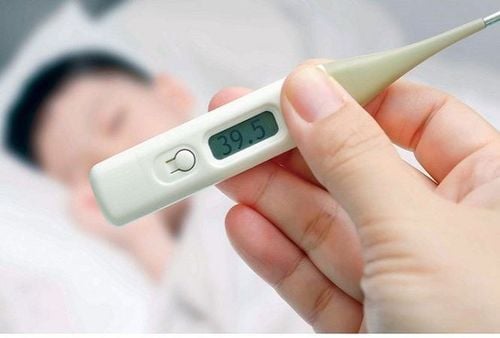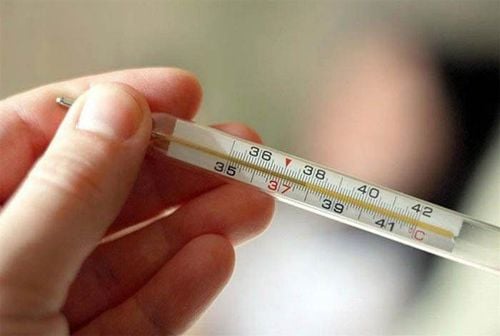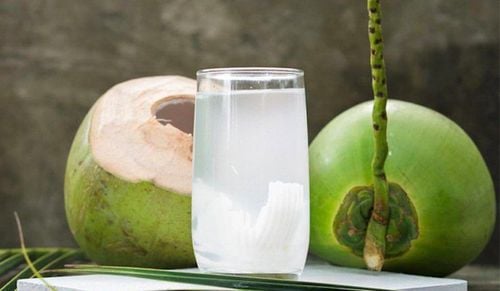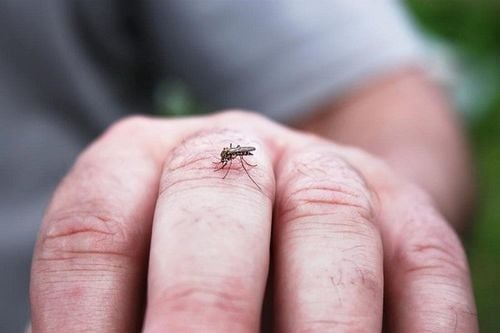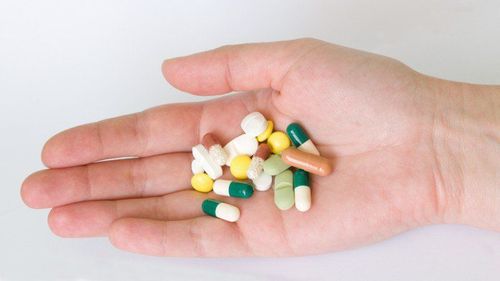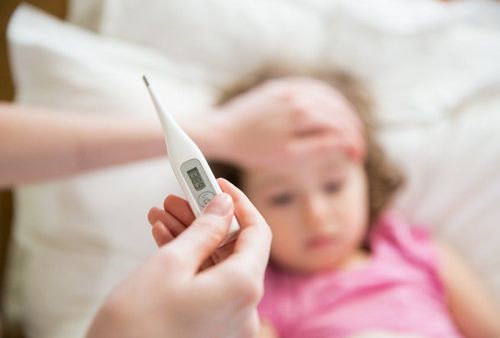The article was professionally consulted by PhD, MD Nguyen Thi Nhat - Infectious Disease Specialist - Department of Examination and Internal Medicine - Vinmec Hai Phong International General Hospital. The doctor has more than 10 years of experience in the field of renal replacement, and in the field of infectious diseases, examining and managing patients with kidney disease and infectious diseases.
Treatment of dengue fever requires timely and proper rehydration and electrolyte repletion to limit serious consequences caused by dehydration, such as shock, circulatory collapse, coma, and neurological disorders.
1. What to do with dengue fever?
Currently, there is no specific medicine for patients with dengue fever. Therefore, when suspected of having dengue fever, patients should go to the doctor as soon as possible for accurate diagnosis and appropriate treatment. The main treatment for dengue fever is to deal with symptoms and prevent more serious complications.
To treat dengue fever at home, patients need to use pain relievers with the active ingredient acetaminophen (paracetamol) and avoid taking drugs containing aspirin because it can make bleeding worse. In addition, patients should rest, drink plenty of water, and replenish electrolytes. If the condition worsens in the first 24 hours after the fever subsides, the patient should go to the hospital for examination and treatment of complications when dengue fever becomes severe.
2. Critical situations due to dehydration due to dengue fever
Some patients with severe dengue fever show signs of severe dehydration. This is the most common complication in dengue fever cases and is also the main cause of death, related to plasma leakage.
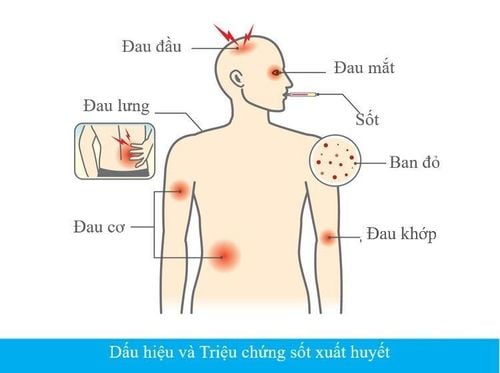
Patients have symptoms of digestive disorders, severe diarrhea, accompanied by vomiting, fatigue, lethargy, pain in the liver area, etc. Many healthy people may not pay attention to dehydration, leading to massive bleeding, and plasma escaping through the vascular wall, causing causing fluid loss from circulation. Consequently, complications such as shock, circulatory collapse, coma, liver and kidney dysfunction, etc. In particular, the complication of dengue hemorrhagic fever with thrombocytopenia is considered extremely dangerous. Some symptoms of dengue hemorrhagic fever with thrombocytopenia include:
Bruises;
- Bleeding gums, nosebleeds;
- Continuous bleeding from open wounds, even if the wound has appeared for a long time;
- Heavy menstrual bleeding;
- Rectal bleeding.
- Blood in stool or urine;
- Fatigue, dizziness, lightheadedness, lethargy.
In more severe cases of dengue hemorrhagic fever with thrombocytopenia, the patient may have internal bleeding. Some signs of internal bleeding include:
- Blood in the urine;
- Blood in the stool;
- Bloody or tarry vomit.
3. Can dengue fever be rehydrated?
The majority (70%) of patients with dengue without shock can be treated on an outpatient basis with oral rehydration. However, the remaining 30% and all patients with dengue with shock require intravenous (IV) rehydration.
Oral rehydration is the recommended first-line treatment for patients with moderate dehydration due to high fever and vomiting. Patients with confirmed or suspected dengue should have their platelet count and hematocrit measured daily from the third day of illness onset until 1 to 2 days after gradually recovering. Accordingly, patients with poor appetite, frequent vomiting, clinical signs of dehydration, increased hematocrit levels, or decreased platelet counts can receive intravenous rehydration under close medical supervision.
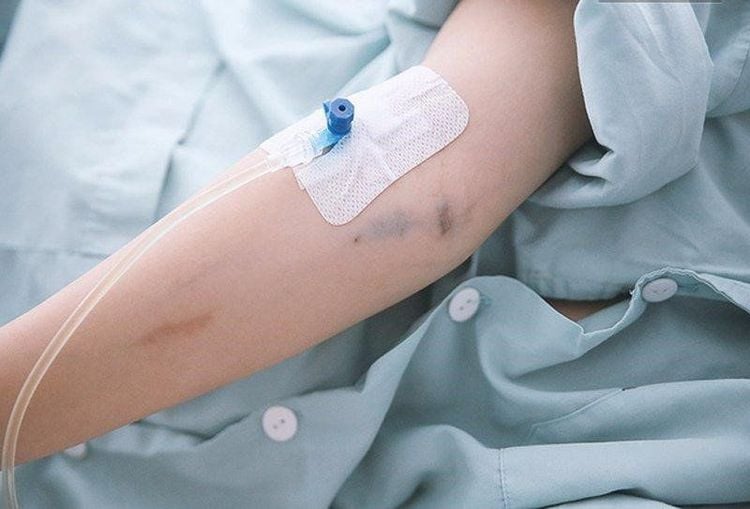
Rehydration therapy for dengue fever patients should be prescribed and performed by a doctor and applied to certain patients with signs of severe dehydration shown in clinical examination, such as:
- Tachycardia;
- Prolonged capillary refill time;
- Cool or mottled skin;
- Signs of neurological disorders;
- Decreased urine output;
- Increased hematocrit;
- Low blood pressure.
Improved cases can be monitored in an outpatient setting. However, patients with dengue fever who do not improve need to continue to stay in the hospital to find a suitable rehydration treatment.
Replenishing water with intravenous fluids can prevent dehydration and stabilize blood volume if the patient cannot maintain oral rehydration. In addition, in rare cases, if the platelet level drops significantly (below 20,000) or if there is severe bleeding, the doctor will prescribe a platelet transfusion for the patient. When a dengue patient has black stools, there is likely gastrointestinal bleeding, and platelet and/or red blood cell transfusions are necessary to bring the patient through the critical stage.
4. Principles of fluid replacement for children with dengue fever
In the severe stage of dengue fever in children, there is an increase in capillary permeability, and shock can occur if a large volume of plasma is lost due to fluid leakage.
The recommended regimen for treating dehydration in children with dengue fever is:
Quickly replace and improve the loss of plasma with isotonic fluid and electrolyte solution or high molecular solution (in case of severe shock); maintain continued fluid therapy for 24-48 hours to protect circulation; Correction of metabolic and electrolyte disturbances; blood transfusion in case of severe, life-threatening bleeding. In cases requiring large amounts of fluid, the volume of the infusion should be gradually reduced as the plasma leakage shows signs of improvement, to prevent complications of hypocalcemia and edema due to excess plasma, leading to respiratory failure or congestive heart failure, especially during the recovery period.

5. How to rehydrate at home orally
Dengue fever patients in the early stages can rehydrate at home orally, it is best to use the following solutions:
- Oresol solution (ORS): Prepare according to the manufacturer's instructions. Should be mixed with boiled water to cool, avoid mixing with milk, mineral water, or fruit juice. Do not add sugar to the solution, do not divide the ORS packet to several times or mix it too concentrated because it will reduce the effectiveness of use;
- Fruit juice: To rehydrate dengue fever patients, you can use fruit juices, such as orange juice, lemon juice, and coconut water. Fruit juice not only provides water and electrolytes but also contains many essential vitamins and minerals, helps strengthen the immune system, and increases the stability of blood vessel walls, thereby reducing the risk of bleeding;
- Filtered water: Dengue fever patients need to rehydrate enough during dengue fever treatment, focusing on resting, and supplementing adequate nutrition.
- In all cases, whether dengue fever can be treated with IV fluids depends on the doctor's instructions. In addition, patients can rehydrate themselves at home by drinking to improve symptoms.
Please dial HOTLINE for more information or register for an appointment HERE. Download MyVinmec app to make appointments faster and to manage your bookings easily.
Reference source: Webmd.com; Denguevirusnet.com and Ncbi.nlm.nih.gov






